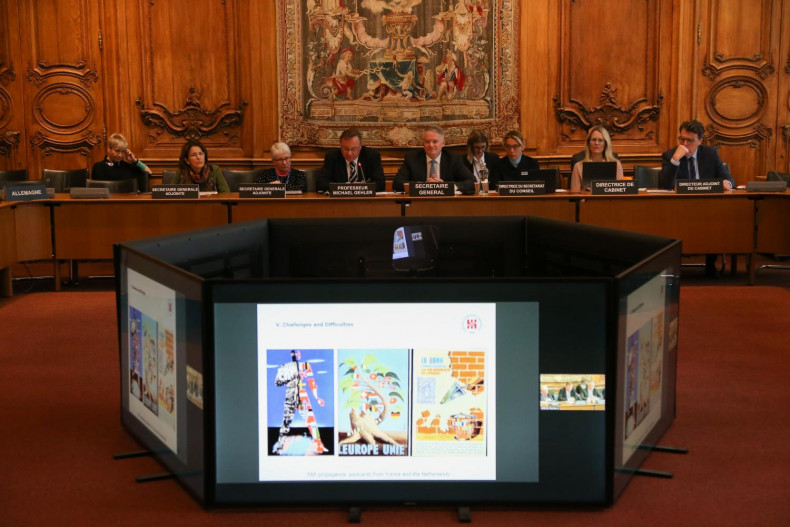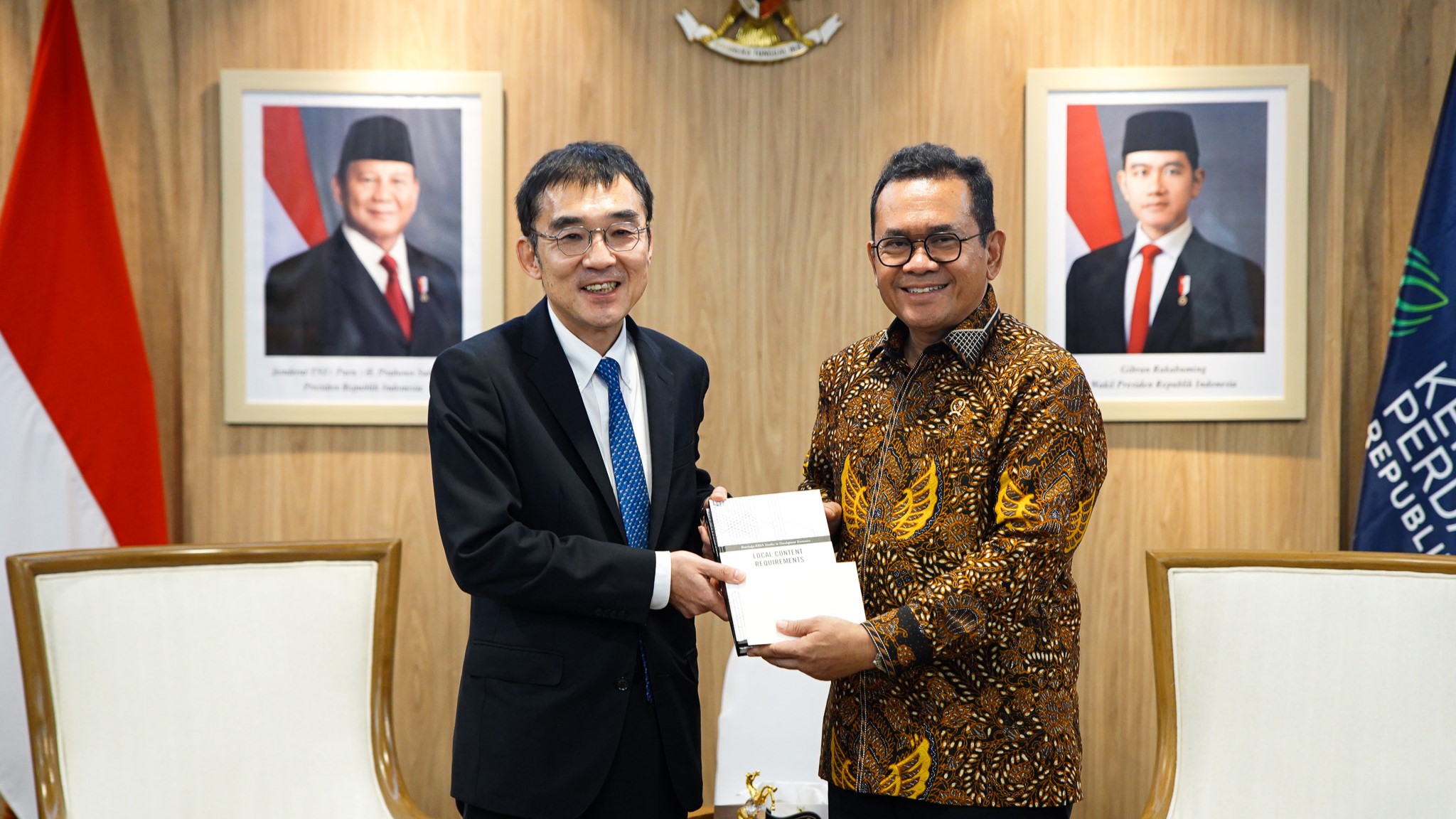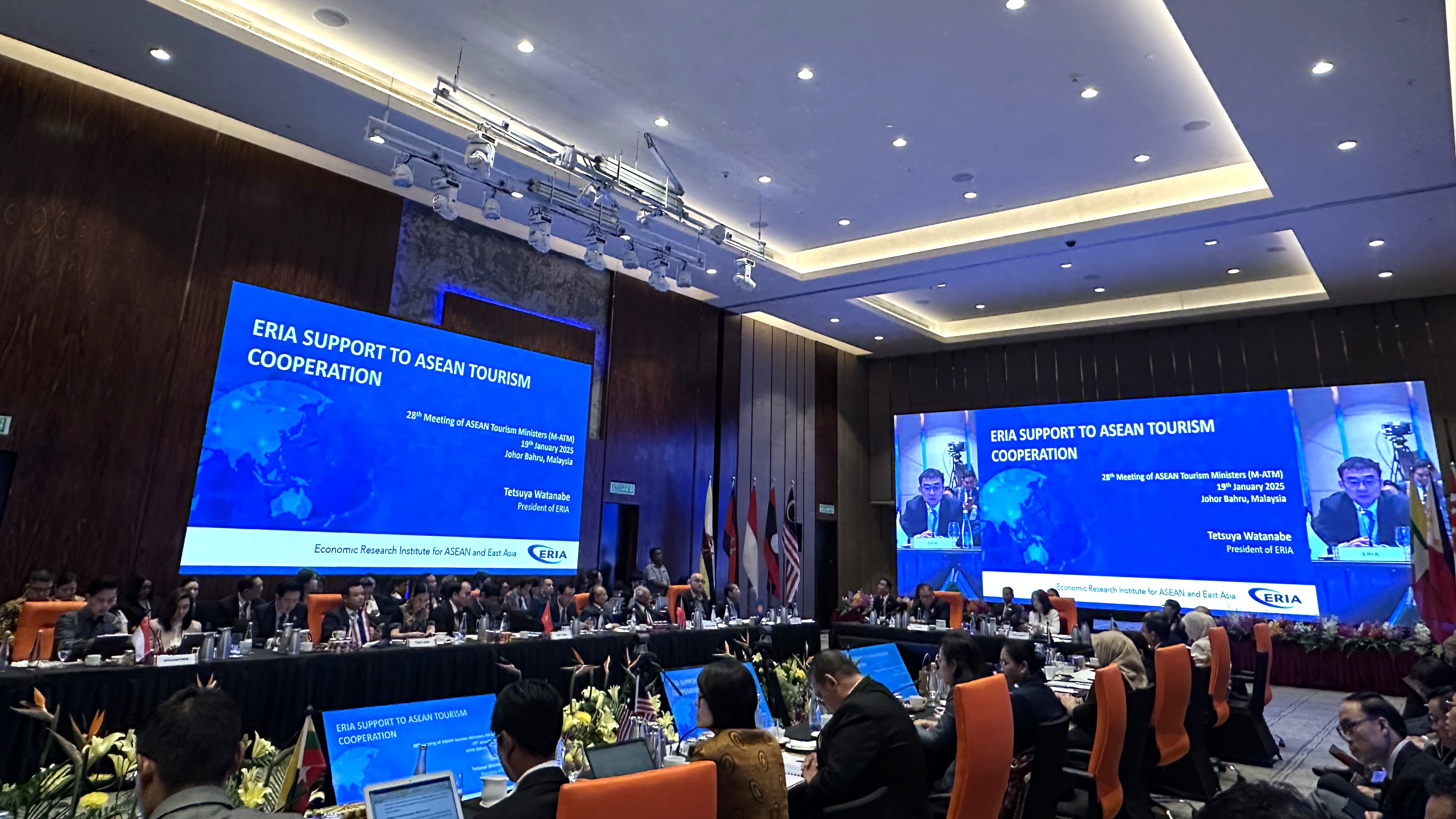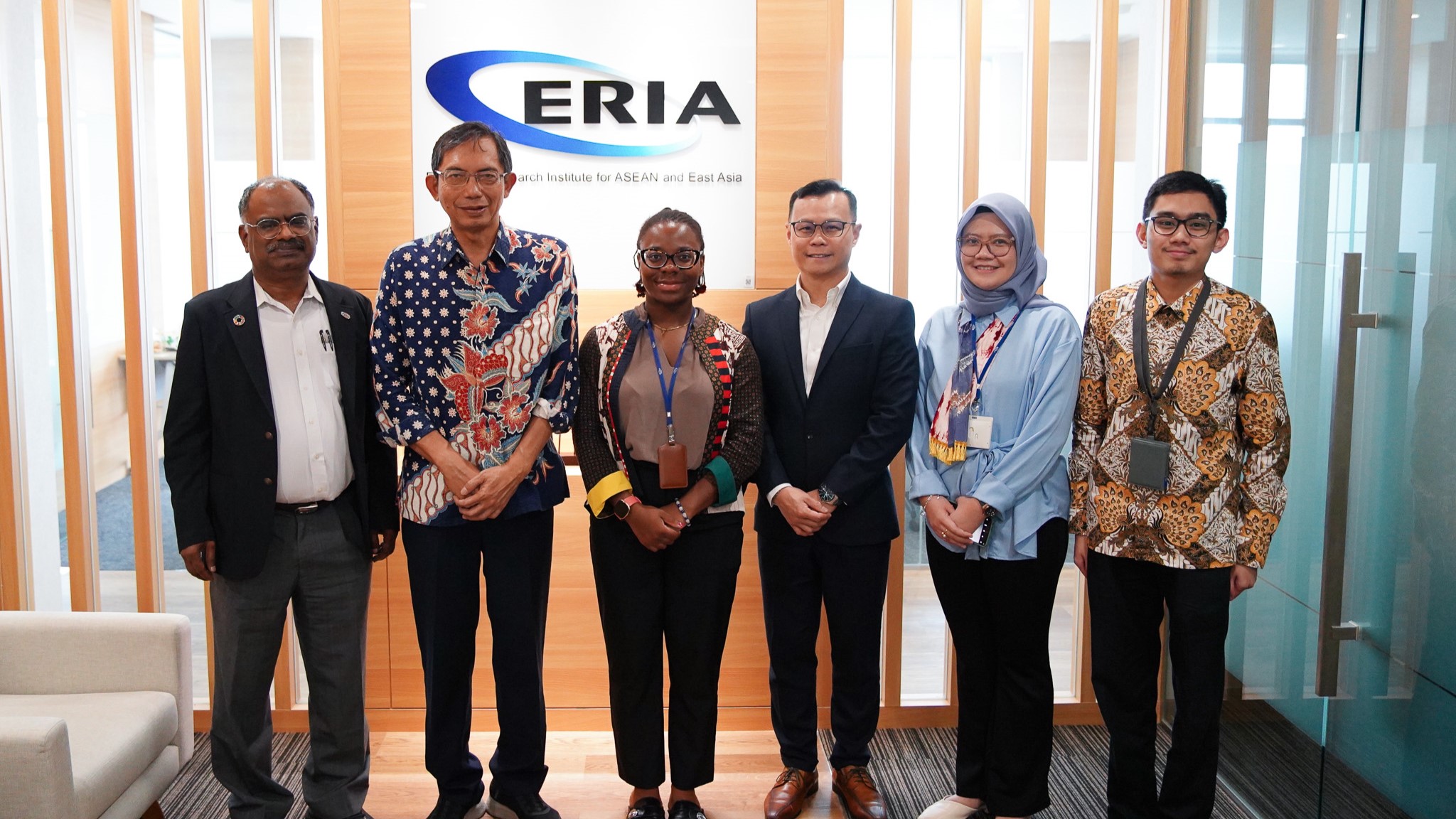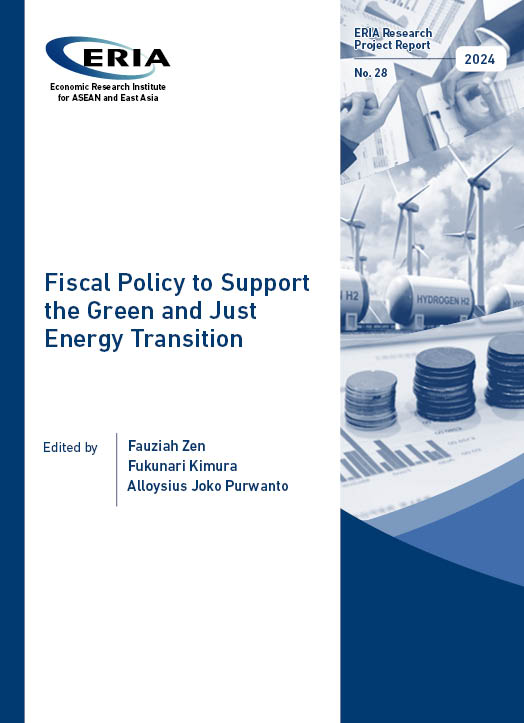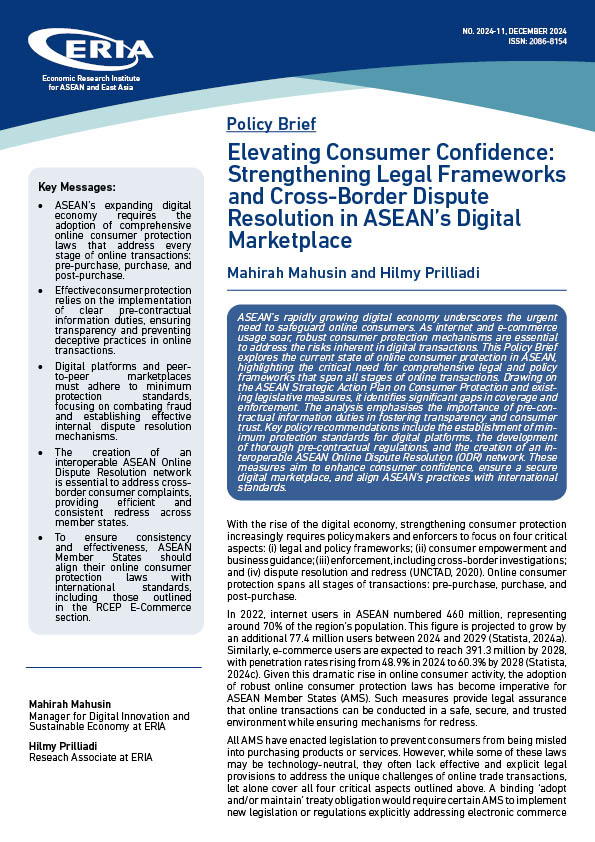Key Steps of Thailand's Bid to Join OECD
Date:
16 January 2024Category:
OpinionsTopics:
Development, Economic IntegrationShare Article:
Print Article:
By Kavi Chongkittavorn, Senior Communications Advisor: Thailand finally submitted a letter of intent to the Organization of Economic and Cooperation Development (OECD), fulfilling a long ambition to become a strong market-based economy that is more globally competitive.
The move follows an approval by the cabinet to start negotiations to join the OECD, often referred to as a "rich countries' club". Completion of the application process will take five to seven years.
Thailand has a long to-do list before its application can be approved. However, if the government and concerned agencies are seriously committed to implementing the criteria outlined by the OECD, membership could come faster. In a nutshell, actions speak louder than words.
This week in Davos, on the sidelines of the World Economic Forum, Prime Minister Srettha Thavisin will meet with the OECD's secretary general, Mathias Cormann, to lobby for Thailand's plan to join the Paris-based organisation. He is expected to push for Thailand to be accepted for OECD membership as soon as possible, as all government agencies have been instructed to fulfil the OECD criteria without fail.
Obviously, the current government wants Thailand to become ASEAN's first nation to be an OECD member, joining Japan and South Korea, the other Asian economic powerhouses. Indonesia is another ASEAN member that has expressed a strong intention to join the OECD. Jakarta has actively engaged with the organisation's various committees and working groups.
Since Mr Srettha assumed the premiership, he has travelled worldwide to promote Thailand and attract new investment. He has been labelled the "PM salesman" for his numerous roadshows for the country's megaprojects and other less important economic development plans. He has likewise been wooing potential investment for the land bridge project, which will link the Andaman Sea and the Gulf of Thailand through land and rail links.
Another project is the Eastern Economic Corridor, which is supposed to be the hallmark of Thailand's new economic developmental model, relying mainly on innovation and digital transformation.
With the motto, "better policies for better lives", the OECD was founded in 1961 and currently has 38 members. Its main purpose is to shape policies that foster prosperity, equality, opportunity and well-being for all. It was built after the economic devastation of post-World War II and is now expanding its programmes and cooperation with other countries around the world.
Thailand was ranked number 30 out of 64 economies for competitiveness by the International Institute for Management Development (IMD) in its most recent annual rankings. Apart from joining the OECD, Thailand aims to open up its economy with foreign countries by signing additional free trade agreements.
Thailand currently has 14 free trade agreements, including the Regional Comprehensive Economic Partnership. Currently, the country is negotiating with the EU, Turkey, Pakistan, Sri Lanka, and Canada, as well as the Bay of Bengal Initiative for Multi-Sectoral Technical and Economic Corporation (Bimstec) Free Trade Area.
The second round of negotiations on the Thai-EU free trade agreement is scheduled for later this month. On the sidelines, this issue will be at the top of the agenda in the discussions between Mr Srettha and EU President Ursula von der Leyen.
When considering a new member, OECD evaluations will scrutinise five key elements related to structural reform, an open trade and investment regime, social and equal opportunity policies, public governance and anti-corruption efforts, and environmental protection.
More efforts must be made to meet these criteria, especially in public governance, anti-corruption measures, and environmental protection.
While Thailand has made much progress on environmental protection, the Western trading partners, and especially the EU, still find the overall Thai efforts wanting. The EU has been imposing new standards related to mitigating the climate crisis. Thailand, Indonesia and Malaysia are at the forefront in opposing these measures as they view them as disguised protectionism.
Thailand's new economic model, known as the Bio-Circular-Green or BCG, has been mainstreamed following its adoption by Apec in 2022. In addition, Thailand has a good reputation internationally for its sufficiency economy along with the BCG. The Srettha government continues its predecessor's policy to promote sustainable development and investment. As Thailand moves towards the 4.0 Industrial Revolution, the country is going after major overseas tech companies to invest in smart industries and research and development. The Board of Investment is contemplating more incentives for such investors.
However, according to the OECD's findings, the main constraint to Thailand's competitiveness is the lack of skilled workers to meet the demands of advanced industries. The OECD stated that the government has been actively working with the Thai private sector and international partners to advance human resource development, especially in these advanced industries.
The first phase was signed in May 2018 and lasted three years under the Thailand Country Programme. Its four priorities were good governance and transparency, business climate and competitiveness, Thailand 4.0, and inclusive growth. The whole phase covered 16 projects, costing 120 million baht, which covered 11 Thai government agencies.
Currently, phase 2 will cost 166 million baht and aims at supporting Thailand's domestic reforms, comprising 20 projects organised under four key pillars -- good governance, business news climate and competitiveness, social inclusion and human capital development, and green recovery.
Thailand has participated in 48 mechanisms under various capacities in the OECD programs and committees. This year, Thailand will dispatch senior officials from the Ministry of Foreign Affairs to be attached to the OECD.
This opinion piece was written by ERIA's Senior Communications Advisor, Kavi Chongkittavorn, and has been published in Bangkok Post. Click here to subscribe to the monthly newsletter.
Disclaimer: The views expressed are purely those of the authors and may not in any circumstances be regarded as stating an official position of the Economic Research Institute for ASEAN and East Asia.
Photo Credit: Andrew Wheeler/OECD
